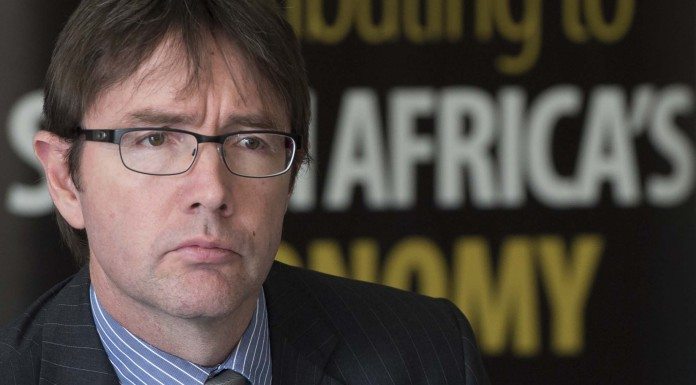
ROGER Baxter, CEO of Minerals Council SA, hoped to see evidence of investment-friendly policy shifts taken by the South African government within six months.
Senior policy-makers in the African National Congress (ANC) had acknowledged recommendations by B4SA, an advocacy body representing the input of 350 experts, aimed at restoring growth to the South African economy, he said.
“Hand on heart, we have done our utmost to explain how to get the South African economy back on track,” said Baxter in a presentation outlining the mining industry’s role in B4SA’s presentation to Government. “We hope they will be taken forward. We will see in the next six months.”
Baxter criticised media commentary suggesting this latest encounter between business and government would result in fresh disappointment. South Africa has seen a number of false starts in respect of public/private sector social and economic compacts. “People say, what’s changed [compared to previous business initiatives asking for policy and structural reform]. What’s changed is that South Africa is at the precipice,” he said.
South Africa’s GDP was expected to fall 8% this year as a result of the Covid-19 pandemic, although the mining sector itself has staged a reasonable second quarter recovery. Debt to GDP is forecast to exceed 100% by 2023 having moved to 86% this year.
Early ‘wins’ – relatively easy-to-conclude deals that might signal reform – would be allowing mining companies to proceed with self-generation projects totalling 2.3GW. Baxter put a 18 to 36 month timeline on the possibility of these being completed.
“We have agreed with the [mines] minister [Gwede Mantashe] to take this on a project-by-project basis. So if there are land use changes that have to be made these should be taken to the director-generals. That’s a practical example,” said Baxter.
A private sector concession on the Mpumalanga to Maputo rail line, primarily for coal, would be another short-term project that would demonstrate the government’s interest in thinking differently about infrastructural competitiveness, he said.
The ANC’s Economic Transformation Committee published a document last month that raised a number of recommendations for economic recovery post-Covid-19. Baxter said the ideas were ‘inward-looking’ when, in fact, the country couldn’t marshal enough capital to pay for its own growth. It had to be sourced from offshore.
“We need policy certainty. You need to fix the ‘continuing consequences'”, he said of a dispute about whether transformation deals in the mining sector had to be repeated in the event of mining licence renewals. This particular matter is before the High Court with no prospect of an out-of-court settlement.
“There is no angst. Legal cases are continuing. It’s not unusual for the legal issues being worked out in this way,” he said citing the existence of hundreds of disputes between government the industry in international jurisdictions.










